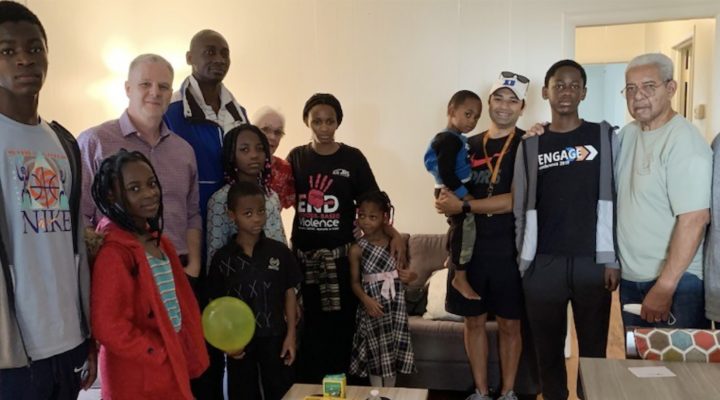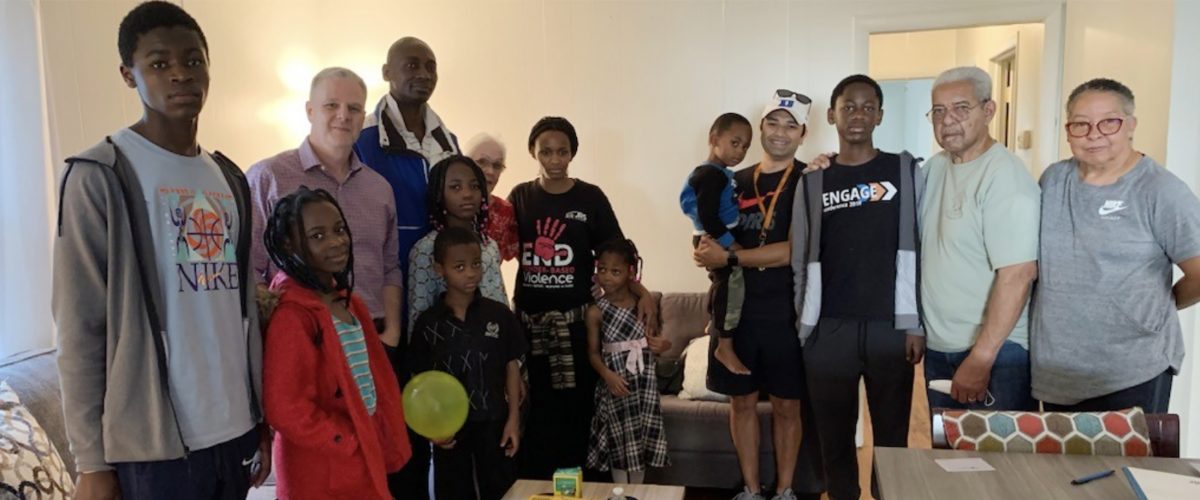As heated debates about immigration continue on the national stage, it is more important than ever for Christians to practice compassion to the vulnerable and the stranger — to shape the conversation around immigration toward greater hospitality instead of being shaped by inflammatory political rhetoric.
As the pastor of Temple Baptist Church in Durham, N.C. — a state that is home to more than 300,000 immigrants — I know firsthand the importance of answering God’s call to welcome the “alien” and “stranger.” Churches are uniquely equipped — and called — to be advocates for the most vulnerable, and we can and must answer this call by welcoming immigrants into our communities and equipping them to resettle among us.

Randy Carter
Practicing the ministry of “radical” hospitality, after all, is a theme that courses through the Scriptures. Leviticus 19:33-34 especially captures this call to welcome the vulnerable: “When an alien resides with you in your land, you shall not oppress the alien. The alien who resides with you shall be to you as the citizen among you; you shall love the alien as yourself, for you were aliens in the land of Egypt: I am the LORD your God.”
More significantly for the church, Jesus emphasizes the divine importance of hospitality by equating welcoming the stranger with welcoming himself. In Matthew 25:35, Jesus says, “I was hungry and you gave me food, I was thirsty and you gave me something to drink, I was a stranger and you welcomed me.”
The work of welcoming should be a natural extension of the activity of a church centered on Jesus, who welcomed those others rejected. Churches like the one I serve have tangible resources, including space in our building and on our campus and land, to be the hands and feet of Christ by welcoming these members into our communities.
“Simply having more exposure to refugee families can help our congregations gain a broader, more connected vision of community.”
Simply having more exposure to refugee families can help our congregations gain a broader, more connected vision of community. I have seen this firsthand through the Welcome House Ministry at my church, where we use homes on our property to provide temporary housing for refugee families.
This initiative has provided an opportunity for members of my congregation and I to meet refugees from around the world who have escaped danger and persecution to seek a new life in Durham. While initially hesitant, more members are now comfortable conversing with refugee families, understanding that genuine connection matters more than fluency. This, in turn, has fostered a more welcoming and inclusive church environment and shaped a greater understanding of challenges refugees face, such as the rapid depletion of resettlement stipends due to expensive temporary accommodations.
Working with immigrant families, whether from the Democratic Republic of Congo, Afghanistan or Myanmar, has made policy become personal. Immigrants are not mere political issues; they are individuals with families, stories and intrinsic value. Through my ministry at Temple Baptist Church, I have helped a Congolese family adjust to living in a small rental house, connected with Afghan families through driving practice and helped a Burmese family purchase a new car. These personal connections underscore the resilience and generosity of refugee families and the profound impact of genuine welcome and support.
Our Christian faith compels us to address systemic issues that hinder refugee families from flourishing — including by advocating for just and compassionate immigration policy. But change starts in our communities first, with developing an understanding of the “push” factors that force refugees to leave their home countries and providing safe haven for them in our communities.
Each immigrant in our community is an individual made in the image of God with inherent worth and dignity, and radical hospitality is an opportunity to recognize and honor this humanity. Welcoming the stranger is not just an act of kindness but a divine calling on all our lives to reflect the heart of the gospel and the love of Christ to those most in need.
Randy Carter serves as pastor of Temple Baptist Church in Durham, N.C. At the heart of Temple Baptist Church’s commitment to welcoming immigrants and refugees is a profound theological and scriptural foundation. Randy exemplifies this commitment through his participation in welcoming newcomers, his work with the Welcome House and World Relief Durham, and his earlier ministry efforts in Lebanon.
Related articles:
Stimpson pours lifetime of skill, compassion into Welcome House refugees
DaySpring’s Naomi House demonstrates opportunity for welcoming asylum seekers


